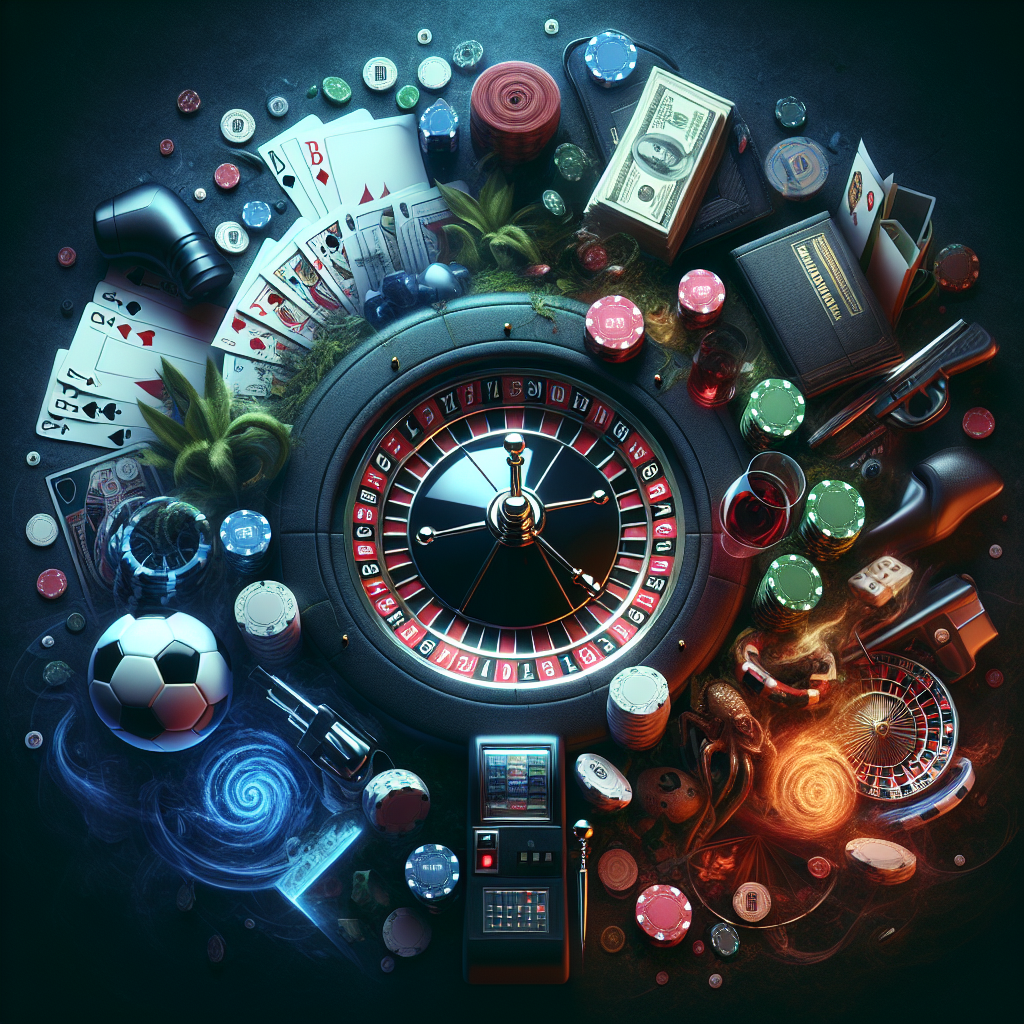The Hidden Perils of Compulsive Gambling: Understanding the Risks of Casino and Sports Betting
In the mesmerizing world of casino lights and sports excitement, lies a darker side that often goes unnoticed – the peril of compulsive gambling. What might start as innocent entertainment can quickly spiral into a dangerous addiction, wreaking havoc on individuals and their loved ones.
The Temptation and Escalation

The allure of the casino or the thrill of sports betting can be overwhelmingly enticing. The flashing lights, the chance of a big win, the adrenaline rush – they all contribute to an environment where it's easy to lose track of time, money, and reality. What begins as a casual pastime can quickly escalate into a compulsive habit, leading to detrimental consequences.
Diving Deeper: Understanding Compulsive Gambling
Compulsive gambling, also known as gambling disorder, is a serious condition characterized by the inability to resist the urge to gamble, despite negative consequences. It transcends beyond a mere hobby and becomes a consuming obsession, affecting all aspects of an individual's life – financial stability, relationships, mental health, and overall well-being.
Signs of Compulsive Gambling
Recognizing the signs of compulsive gambling is crucial in addressing the issue before it spirals out of control. Some common indicators include:
Preoccupation with Gambling: Constantly thinking about past gambling experiences or planning the next bet.
Increased Risk-Taking: Taking greater risks in gambling to experience the same level of excitement.
Financial Instability: Struggling to cover expenses due to gambling losses.
Lying or Hiding: Concealing the extent of one's gambling activities from loved ones.
Social Withdrawal: Neglecting social interactions and responsibilities in favor of gambling.
The Impact on Mental Health
The repercussions of compulsive gambling extend far beyond financial woes. The constant stress, anxiety, and guilt associated with the addiction can take a severe toll on mental health. Individuals may experience depression, increased irritability, insomnia, and even suicidal thoughts. Seeking professional help is crucial in addressing both the addiction and its mental health ramifications.
Seeking Help and Support
Acknowledging a gambling problem is the first step towards recovery. It's essential to seek support from loved ones, mental health professionals, or specialized addiction services. Various treatment options, including therapy, support groups, and medication, are available to help individuals combat their addiction and regain control of their lives.
Conclusion: A Call for Awareness
Compulsive gambling is a silent predator that can sneak into anyone's life, regardless of age, gender, or background. By understanding the risks associated with casino and sports betting, we can take proactive steps to prevent addiction and protect our well-being. Remember, gambling should be a form of entertainment, not a destructive force. Stay informed, stay vigilant, and seek help when needed.
Let's spread awareness and support those struggling with compulsive gambling, fostering a community of empathy, understanding, and recovery.
In a society that often glamorizes the thrill of gambling, it's crucial to shed light on the hidden dangers lurking beneath the surface. By being informed and vigilant, we can safeguard ourselves and our loved ones from the perils of compulsive gambling. Remember, the true bet worth making is on your health, happiness, and well-being.
--WIX AI Tool
References
Mayo Clinic
American Psychiatric Association
Cleveland Clinic
Mount Sinai
Psychology Today
Yale Medicine
American Psychological Association

Comentários